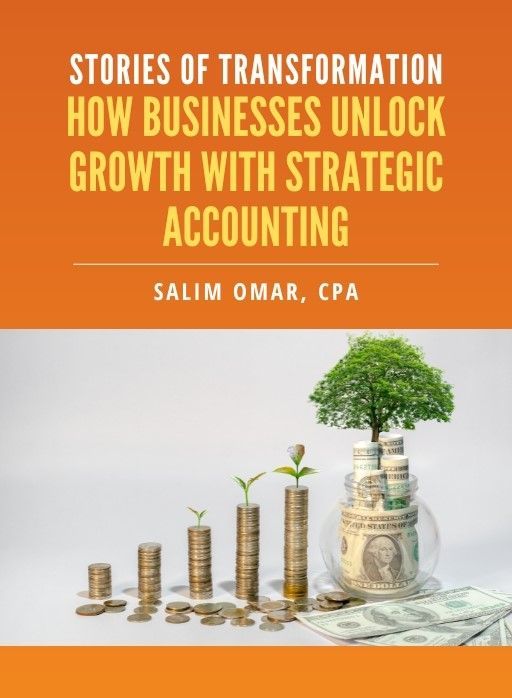How Clean Books Make Year-End Tax Filing Easier

Year-end tax prep season isn’t exactly a party. But clean books? That’s your backstage pass to skipping the chaos, avoiding costly mistakes, and maybe even saving some cash. Good bookkeeping isn’t just about being organized—it’s the engine that powers smoother tax filing, fewer IRS headaches, and a lot less scrambling come January.
Let’s break it down: if your records are a mess, you’re stuck chasing receipts, reconciling transactions under pressure, and trying to remember what that $346.72 expense was from nine months ago. But when everything’s in order? You’re not just filing taxes—you’re doing it with confidence, clarity, and control.
In the first few paragraphs alone, we’ve hit key search terms like year-end tax prep, clean bookkeeping, avoid tax penalties, reduce tax stress, and accurate records—because these aren’t just SEO gold; they’re the real-world benefits business owners are looking for.
Why Clean Books Matter More Than You Think
It’s tempting to treat bookkeeping like a back-burner task—until year-end rolls around and suddenly it’s a five-alarm fire. The truth is, maintaining clean books throughout the year is one of the smartest financial moves a business can make. Here's why:
- Avoid last-minute surprises: No one wants to find out they owe more than expected or missed a major deduction.
- Speed up tax prep: Accountants love well-organized books. It means less back-and-forth, fewer questions, and faster filing.
- Reduce your tax prep bill: If your CPA doesn’t have to spend hours cleaning up your books, guess what? You’re not paying for cleanup time.
- Stay compliant: Clean records make it easier to comply with IRS regulations—and reduce your audit risk.
Make smarter decisions: Updated financials aren’t just for taxes. They help guide hiring, budgeting, and growth strategy all year long.
Real Talk: What “Clean Books” Actually Look Like
It’s not just about entering numbers into QuickBooks or a spreadsheet. Clean books are accurate, consistent, and up to date. That includes:
- Every transaction categorized correctly (no more guessing if it was “Office Supplies” or “Meals & Entertainment”)
- Bank and credit card accounts reconciled monthly
- Invoices and receivables tracked
- Receipts and supporting docs stored digitally
- Payroll records matching up with tax filings
- Clear separation of personal and business expenses
Basically, it should take a CPA about five minutes to figure out what’s going on in your books. If they need a map, flashlight, and aspirin… it’s not clean.
The Cost of Messy Books at Tax Time
Let’s say a business waits until January to get serious about bookkeeping. Suddenly, they’re paying hundreds (or thousands) of dollars in rush CPA fees, data entry hours, and missed deduction opportunities. Even worse, disorganized books increase the chances of filing late, overpaying taxes, or getting flagged by the IRS.
We’ve seen it happen: a business thought they had a loss for the year. Turns out, when the numbers were cleaned up properly, they actually made a small profit—and owed tax. But since it was all discovered in mid-March, the stress was sky-high, and there wasn’t time to strategize or save. All of that could’ve been avoided with better records throughout the year.
A Simple Example: How Clean Books Save Money
One business came to Straight Talk CPAs with books that were already tidy. Their revenue and expenses were categorized, receipts uploaded, and accounts reconciled every month. When it came time for tax filing, the process took less than a week from start to finish. The CPA found several deductible expenses that were easy to verify thanks to digital documentation, and the business ended up saving over $4,000 in taxes—and even got a refund.
Now contrast that with another case where the CPA spent nearly 15 hours just sorting through mislabeled income and missing receipts. Not only did the client pay more for tax prep, but they missed out on deductions simply because they didn’t have backup documentation.
What to Start Doing Now
Even if your books aren’t perfect, there’s still time to course-correct before year-end. Here’s where to focus:
1. Catch up on reconciliations
Make sure every bank and credit card account is reconciled up to the latest month. Don’t let three months of unknown transactions pile up.
2. Review your income
Are all invoices recorded and paid? Any outstanding receivables? This helps prevent income gaps or overstated revenue.
3. Clean up your expense categories
Misclassified expenses are a red flag. Go through your chart of accounts and make sure categories make sense and are consistent.
4. Double-check payroll
Are payroll records aligned with your tax filings and W-2s? Year-end payroll reporting is a whole other beast—you don’t want discrepancies.
5. Go digital with receipts
Use software like Dext, QuickBooks, or even Google Drive to store receipts. You’ll thank yourself later if the IRS ever comes knocking.
Should You DIY or Call In a Pro?
It depends on where your books stand. If you’re only a few steps behind and know your way around your software, a little elbow grease might get you back on track. But if things are looking fuzzy—or you’re not even sure where to start—it’s smart to call in a CPA before it snowballs.
Straight Talk CPAs offers monthly bookkeeping, year-end catchup services, and full tax prep for businesses that want peace of mind, not panic. Getting professional help now can mean fewer headaches, lower tax bills, and a faster turnaround when it counts.
Wrap-Up: Don’t Let Bad Books Ruin Your Tax Season
Year-end taxes don’t have to be painful. With clean books, the process becomes faster, cheaper, and less stressful—and you walk away with more confidence in your business’s financial story. Waiting until the last minute isn’t a strategy—it’s a gamble.
Solid records throughout the year set you up for better decisions, fewer penalties, and real tax savings. And if things aren’t looking too clean right now? That’s exactly what
Straight Talk CPAs is here for.
Free eBook:
Stories of Transformation


Salim is a straight-talking CPA with 30+ years of entrepreneurial and accounting experience. His professional background includes experience as a former Chief Financial Officer and, for the last twenty-five years, as a serial 7-Figure entrepreneur.




